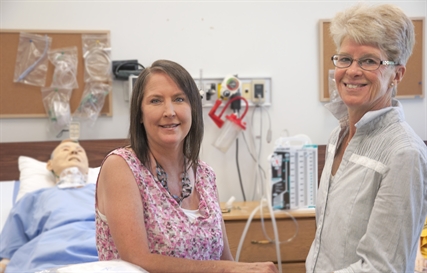Elevate your local knowledge
Sign up for the iNFOnews newsletter today!
Sign up for the iNFOnews newsletter today!
Selecting your primary region ensures you get the stories that matter to you first.

OKANAGAN – Everyone lies, including seniors.
According to a new study from UBC, older adults who have been discharged from the hospital following serious ailments tend to minimize or even lie about risks related to their condition and its management. They do it in order to avoid being seen as vulnerable.
“These patients want to return to a “normal” pre-hospitalization life immediately, even if it is no longer possible” says Rachelle Hole, associate professor of Social Work at UBC’s Okanagan campus and the study’s co-author. “This will lead them to downplay, hide or mask their risks.
“These strategies may backfire and result in hospitalization, relapse, or worse.”
The study involved profiling older adults—with an average age of 82 years—recently discharged from the hospital, following a heart-related event, such as a heart attack. When asked about their post-hospital health risks, capabilities, and their self-perception the participants preferred to highlight their abilities rather than discuss their risk for future health issues, complications, or relapse.
The group associated the admission of a health risk with being disabled, incompetent and no longer independent.
“These findings suggest that the type of conversation health care providers have may significantly influence the patients’ well-being,” says co-author Kathy Rush, associate professor of Nursing. “Seniors equate risk with loss and it may be more beneficial to change the conversation to focus on strengths.
“It may also be useful to communicate standardized instructions with the family present to ensure a smooth transition from hospital to home.”
Today, one in seven Canadians is aged 65 or over. By 2036, this will increase to almost one in four. Many older adults are at risk of rehospitalisation, during the first weeks following discharge, a risk often associated with physical weakness, new and unfamiliar medications and new psychological issues.
News from © iNFOnews.ca, . All rights reserved.
This material may not be published, broadcast, rewritten or redistributed.

This site is protected by reCAPTCHA and the Google Privacy Policy and Terms of Service apply.
Want to share your thoughts, add context, or connect with others in your community?
You must be logged in to post a comment.